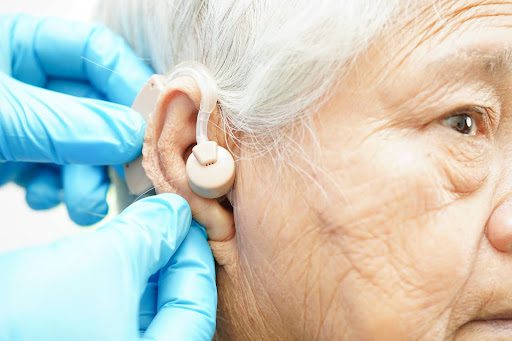Hearing loss can make life difficult for older adults. It limits conversations, creates stress, and often leads to isolation. In Northeast Missouri, there are resources designed to help seniors manage these challenges. From technology to support programs, these tools focus on keeping communication open and life connected.
Understanding Hearing Loss in Seniors
Hearing loss often comes with age. It can make conversations more challenging and lead to frustration in daily life. Simple moments like talking to family or hearing the doorbell can become a struggle. Over time, this may lead to loneliness and safety concerns. Taking steps to manage hearing changes early can make life easier and keep you connected.
Assistive Listening Devices
Hearing aids are one option, but many seniors need extra support. Devices such as amplified phones, TV listening systems, and personal amplifiers can make a big difference.
Some programs offer free or low-cost amplified phones for residents who qualify. These phones increase sound without adding background noise. Television listening systems allow clear audio without disturbing others. Small pocket amplifiers help in places like restaurants or during group activities.
Access to Hearing Screenings
Early detection matters. Local health providers and senior programs often hold hearing screening events at community centers. These screenings are quick and can point out if someone needs further evaluation.
Screenings also guide next steps. That might include referrals to audiologists or information on financial aid for hearing aids. Some counties work with volunteer organizations to make these checks more accessible.
Communication Support Programs
Clear communication builds confidence. Seniors can attend classes that teach lip-reading, speech reading, and communication strategies. These sessions often include caregivers so both sides understand the best ways to talk in noisy places or crowded rooms.
Group classes provide more than education. They create a sense of belonging, which helps fight isolation. Meeting others with similar challenges can lift spirits and encourage continued social activity.
Captioned and Visual Tools
Television shows, online videos, and even some phone calls now have captioning options. Streaming platforms and broadcast channels include closed captioning features. Many libraries and senior centers also teach how to turn on captions on TVs, tablets, and smartphones.
Visual alert systems add safety at home. Flashing lights connected to doorbells, smoke alarms, or telephones can replace sounds that may go unnoticed. These tools help seniors stay independent without missing important signals.
Transportation and Outreach Services
For seniors who cannot drive, transportation programs offer rides to hearing clinics, community events, or support groups. Access to these services ensures they do not skip screenings or miss programs that improve communication.
Volunteers and outreach teams often visit homes to explain available technology. They can also help set up devices and show how to use them. This one-on-one support is especially helpful for those who feel overwhelmed by new tools.
Building a Connected Community
Hearing loss should not separate anyone from family or friends. Community programs create spaces where seniors can stay active and engaged. Congregate meal sites, senior centers, and wellness classes often provide quiet areas or amplified devices for group discussions.
Reducing isolation starts with awareness. Families, caregivers, and community members play a role by encouraging regular hearing checks and making sure seniors know about these resources.
Your attention and support are important in helping older adults with hearing challenges stay connected and confident, and we, at Northeast Missouri Area Agency on Aging, can guide you. To learn more about programs that improve communication and make daily life easier, and how you can take part in supporting hearing-impaired seniors in Northeast Missouri, contact us today! Additional resources can be found at Missouri Assistive Technology at at.mo.gov.

